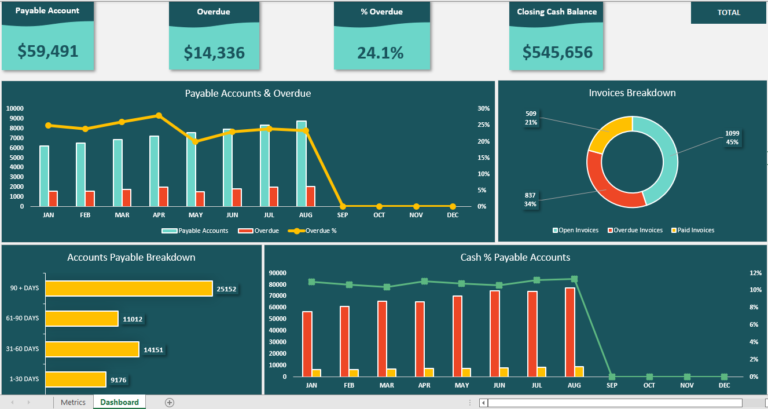The Future of Accounts Payable: A Digital Transformation
The world of finance and accounting is on the cusp of a revolution, and at the heart of this transformation lies the Accounts Payable (AP) department. Traditionally seen as a paper-heavy, time-consuming process, AP is now evolving rapidly into a digital, efficient, and strategic powerhouse that promises to drive businesses into the future. In this blog, we explore the various aspects of the future of Accounts Payable and how it’s set to redefine financial operations.
1. Automation Takes Center Stage
One of the most significant shifts in the AP landscape is the automation of routine tasks. Manual data entry, invoice matching, and payment processing are being replaced by smart software solutions. With the integration of technologies like Artificial Intelligence (AI) and Robotic Process Automation (RPA), organizations can streamline their AP processes, reducing errors and costs while improving speed and accuracy.
2. Enhanced Data Analytics
The digital transformation of AP is unlocking the power of data analytics. With easy access to structured data, businesses can gain valuable insights into their financial health. Predictive analytics can help organizations forecast cash flow, optimize spending, and identify areas for cost reduction, ultimately contributing to better decision-making and strategic planning.
3. Blockchain for Security and Transparency
Blockchain technology is poised to revolutionize AP by offering an unchangeable ledger that ensures security and transparency in transactions. It reduces the risk of fraud, minimizes errors, and provides an audit trail that’s accessible to authorized parties. The use of blockchain in AP holds the promise of faster, more secure, and cost-effective transactions.
4. Vendor Portals for Collaboration
Modern AP systems offer vendor portals, enabling seamless collaboration between organizations and their suppliers. This self-service approach empowers suppliers to track the status of their invoices, payments, and resolve issues directly through the portal. It enhances relationships, reduces communication barriers, and ensures smoother transactions.
5. Mobile Approvals and Accessibility
With mobile apps becoming an integral part of business operations, AP processes are no exception. Mobile approval workflows allow managers to approve invoices and payments on-the-go, improving efficiency and reducing processing times. It’s a game-changer for businesses with remote or decentralized teams.
6. Sustainable and Eco-Friendly Practices
As companies focus more on sustainability, AP is adopting eco-friendly practices. By transitioning to digital invoices and payments, businesses significantly reduce paper usage, contributing to environmental conservation. This shift aligns with corporate social responsibility and reduces the environmental footprint of AP processes.
7. Compliance and Regulatory Adherence
The future of AP includes staying compliant with ever-evolving financial regulations. Automated AP systems are equipped to adapt quickly to changing compliance requirements, ensuring that businesses stay on the right side of the law while reducing compliance-related risks.
8. The Role of the AP Professional
With the automation of routine tasks, AP professionals are being liberated from manual data entry and reconciliation, allowing them to focus on higher-value tasks such as data analysis, strategic planning, and supplier relationship management. The future of AP will demand a shift in skillsets, emphasizing analytics, communication, and financial strategy.
9. Improved Cash Flow Management
Digital AP processes enhance cash flow management by providing real-time visibility into financial transactions. This enables organizations to optimize their working capital and make data-driven decisions to ensure a healthy financial position.
10. Seamless Integration with ERP Systems
The future of AP involves seamless integration with Enterprise Resource Planning (ERP) systems. This enables a holistic view of financial data, eliminates data silos, and streamlines operations. AP processes will become an integral part of the broader financial ecosystem.
In conclusion, the future of Accounts Payable is all about digital transformation, automation, data-driven decision-making, and collaboration. As businesses adapt to these changes, they’ll not only realize cost savings and efficiency gains but also position themselves to be more agile, competitive, and strategic in an ever-evolving business landscape. The role of the AP professional will evolve, focusing on insights, strategy, and vendor relationships, rather than repetitive administrative tasks. As the digital revolution continues to unfold, the Accounts Payable department is set to play a crucial role in shaping the future of finance.






